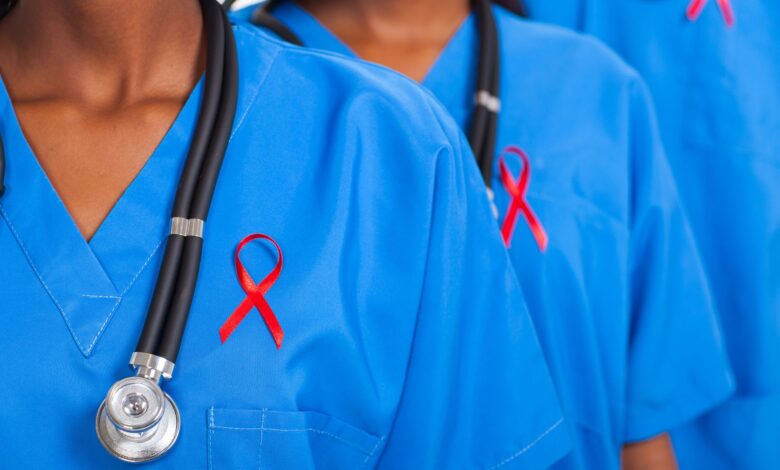Health
Majority of Nigerian youths lack key HIV prevention knowledge, says NDHS report

Many young Nigerians lack essential knowledge about HIV prevention, the Nigeria Demographic and Health Survey (NDHS) 2023-24 report has revealed.
The report, made available to our correspondent indicated said that only 30 per cent of women and 22 per cent of men aged 15-24 understand effective ways to avoid the virus.
It was reported that public health experts warned that this knowledge gap could contribute to the spread of HIV among youths who were particularly vulnerable due to limited access to accurate health information and misconceptions about transmission.
The NDHS data, made available to our correspondent in Abuja on Monday, showed a strong correlation between education level and knowledge about HIV prevention.
“While 56 per cent of women and 43 per cent of men with more than a secondary education demonstrated comprehensive understanding, only 15 per cent of women and nine per cent of men without formal education had similar awareness,” the report stated.
The disparities, according to experts, point to the need for targetted HIV education programmes that will reach young people with limited education.
The data suggests that education is a crucial factor in HIV awareness, especially among youths,” said Dr Ifeanyi Okonkwo, a public health specialist.
“We need to ensure that HIV prevention information reaches young people across all educational backgrounds,” Okonkwo said.
The survey also highlighted a rural-urban divide: while urban youths are more likely to understand HIV prevention methods, rural youths face significant information gaps.
In addition, it said that regions, such as the North East and North-West report particularly low knowledge levels compared with areas like Lagos and the South-West where awareness is higher.
According to the NDHS, cultural, socio-economic, and infrastructural barriers could be factors limiting access to health education in these areas.
The survey revealed that misconceptions about HIV transmission remained widespread among young Nigerians, with many respondents still believing that HIV could be contracted through mosquito bites or by sharing food with an HIV positive person.
“These myths persist despite extensive public health campaigns, suggesting that more culturally-sensitive education efforts are needed,” it said.
Ms Grace Adamu, an HIV/AIDS educator, said that misconceptions about HIV transmission were dangerous and could lead to stigma and discrimination.
“We need to engage communities with correct information and address these myths directly to protect young people,” Adamu said.
The survey also examined sexual behaviours, revealing that while young men report an average of 4.4 sexual partners over their lifetime compared to 1.8 for women, only 33 per cent of men and 32 per cent of women reported, using a condom with multiple partners in the past year.
Health experts warned that these behaviours, combined with limited HIV knowledge, put Nigerian youth at heightened risk of infection.
Responding to the findings, Dr Chukwuma Anyaike, Director of Public Health, Federal Ministry of Health and Social Welfare, announced plans to expand its youth-focused HIV education programmes.
“Addressing these knowledge gaps is crucial. We are working with schools, NGOs, and community groups to reach young people with accurate HIV prevention information,” Anyaike said.
Also, Dr Aminu Magashi, Coordinator of the Africa Health Budget Network (AHBN), urged the government to increase funding for family life and comprehensive education in schools and youth centres, particularly in under-served areas.
Magashi explained that empowering young people with knowledge was key to curbing new HIV infections and promoting healthy behaviours.
“As Nigeria grapples with the challenge of reducing HIV transmission rates, the NDHS findings serve as a wake-up call to improve access to accurate, comprehensive HIV prevention information for youths,” he said.
Bridging these gaps, the AHBN director said, would require collaborative efforts from the government, relevant organisations and communities to ensure that young Nigerians were equipped with the knowledge of protecting themselves




 Davido's Net Worth & Lifestyle
Davido's Net Worth & Lifestyle 
